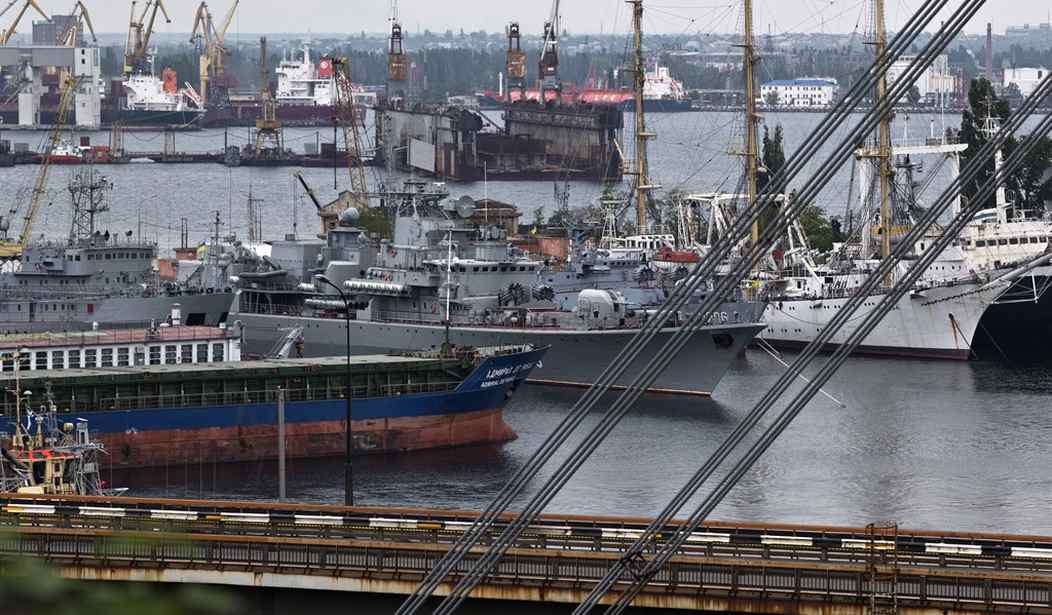Top News
Russia backs out of Ukraine grain deal

When Turkish President Recep Tayyip Erdogan appeared to turn his back on Vladimir Put last week, we asked whether this diplomatic shift could endanger Russia’s deal to facilitate Ukrainian grain shipments since Erdogan had originally worked to broker the deal. We didn’t have to wait long to learn the answer. Earlier today, Russia announced that the deal was on hold, placing critical grain shipments to Africa and Asia at risk. But a Russian spokesperson said that the hold was temporary and would be lifted as soon as Russia’s demands are met. That might be a challenge, however, since the demands in question don’t make very much sense. (AP)
Russia said Monday it has halted an unprecedented wartime deal that allows grain to flow from Ukraine to countries in Africa, the Middle East and Asia where hunger is a growing threat and high food prices have pushed more people into poverty.
Kremlin spokesman Dmitry Peskov announced halting the deal in a conference call with reporters, adding that Russia will return to the deal after its demands are met.
“When the part of the Black Sea deal related to Russia is implemented, Russia will immediately return to the implementation of the deal,” Peskov said.
The conditions described by Dmitry Peskov don’t seem to match reality. He’s implying that Russia’s own shipments of both food and fertilizer are somehow being impeded. But there are publicly available records of all shipping in the region and they show that shipments of both Russian grain and fertilizer are at near record levels. Ukraine doesn’t have a navy and can’t stop Russian shipping. NATO allies are not blocking any Russian vessels.
So why is Peskov saying this? Russia has previously complained about “restrictions on shipping” and the cost of insurance. It’s true that insurance rates have risen for just about everything in the region because of the war. But that’s entirely Russia’s fault, so blaming the insurance brokers isn’t going to do much good. And as I already noted, nobody is blocking Russia’s ships.
This is a serious matter and Russia is engaging in a very dangerous game. Both Russia and Ukraine are major suppliers of wheat, barley, corn, sunflower oil, and other staple food products for much of Africa and southern Asia. Those regions are currently experiencing summer droughts and a sudden cessation of these shipments could lead to actual famines in multiple countries.
This just sounds like a fit of pique on Russia’s part in response to Turkey more closely aligning with NATO and the EU. But then again, Russia’s sense of isolation and the encroachment of NATO on its borders was almost certainly one of the justifications Vladimir Putin felt when launching his invasion of Ukraine. So in that light, perhaps this response might be at least somewhat understandable. But it’s also a case of cutting off your nose to spite your face because Russia’s own exports will suffer under this broken arrangement even as it continues to labor under significant international sanctions.
Read the full article here

-
Uncategorized5 days ago
The Surge of Crypto Slots: A New Period in Online Pc Gaming
-
Uncategorized5 days ago
Kəşf Etmək Binance Coin Kazino Saytları Dünyasını
-
Uncategorized5 days ago
The Increase of Dogecoin Casino Sites: An Extensive Introduction
-
Uncategorized5 days ago
High Roller Online Casinos: Inside the Globe of Elite Betting
-
Uncategorized1 day ago
The Comprehensive Overview to Tutoring Networks







